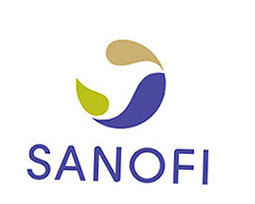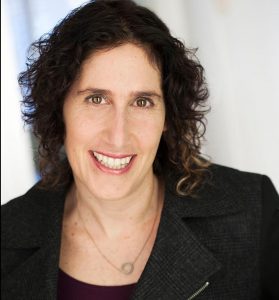Sanofi is a global life sciences company committed to improving access to healthcare and supporting the people we serve throughout the continuum of care. From prevention to treatment, Sanofi transforms scientific innovation into healthcare solutions, in human vaccines, rare diseases, multiple sclerosis, oncology, immunology, infectious diseases, diabetes and cardiovascular solutions and consumer healthcare. More than 110,000 people at Sanofi are dedicated to make a difference on patients’ daily life, wherever they live and enable them to enjoy a healthier life.
As a Sanofi North America talent initiative, ELEVATE started in 2012 as an accelerated development program designed for women in leadership roles to enhance their skills and prepare for critical roles within the organization. The six-month, intensive program is offered to a select group of women leaders with demonstrated performance and potential to assume senior leadership roles in coming years. Since its inception, there have been four cohorts and 66 women have gone through the program.
Why ELEVATE?
In 2012, Sanofi took a hard look at their leadership data and found that, not unlike most companies in their industry, the higher up on the organizational chart you went, the fewer women there were. When they looked more closely, they were able to hone in more specifically to see that there was not an issue in the internal pipeline. Indeed, their numbers were strong across lines of business in terms of gender representation. Instead, they pinpointed the level at which the advancement of women in the organization often plateaued and knew that their investment should be targeted there. In addition, it was clear from the data that was a need for an increased focus on identifying women during the succession planning process for those key leadership roles and the program could provide an opportunity for visibility to the female talent pool. At that time, the diversity and inclusion, talent management and workforce planning functions were part of the same team, a perfect combination of disciplines to look holistically at the design of the program. The team conducted external benchmarking to find out what other organizations were doing to fill similar gaps. With their internal and external data in hand, the program was designed to include leadership development, executive coaching, action projects and high touch, high investment from senior leadership. They also looked to not only develop the women in the program, but to bring about cultural change to better support those women once in senior leadership positions.
Program Structure and Purpose
The ELEVATE program was created to:
- Accelerate development of senior leader mindsets and skill sets
- Help participants and their managers gain perspective about gender dynamics
- Immerse participants in complex strategic challenges facing Sanofi through multi-month action learning projects
- Expose participants to senior Sanofi leaders
- Shape the broader diversity and inclusion culture
The key program elements of ELEVATE are an integrated blend of three residency sessions (Kick-off, Mid-Point, Capstone), a multi-month Market Leadership Project, and executive coaching.
Participants are nominated based on the existing talent review process, with the target cohort size of 20-25 women. Currently, women are identified from the senior director and AVP level, the natural feeder pool for the leadership level where Sanofi was seeing the largest gender gap.
Women represent all lines of business at Sanofi including STEM fields, commercial roles, staff roles, and manufacturing. This was an important design element for the program to be successful. Sanofi prides itself on being a diversified healthcare solutions company, and so it was intentional that the cohorts would reflect that. It is also true that to fully understand Sanofi’s business strategy, participants would need to understand how the company operates across functions.
The program begins with an in-person, residential program that focuses primarily on leadership competency development. Key areas of focus are:
- Strategic leadership mindsets and skill sets
- Enterprise leadership skills such as cross-functional collaboration, managing stakeholders, negotiation and exercising influence.
- Navigating and influencing gender dynamics
- Transformational leadership skills such as communicating with vision and purpose, leading strategic change, and creating a culture of innovation and growth.
The six-month action-learning project which has a dual mission of leadership development and business impact, provides a stretch experience for participants to develop senior-level leadership skillsets while identifying new growth opportunities and building new capabilities for Sanofi. Participants are split into small teams that will work on a separate project outside their current business entity. Each team has a senior-level sponsor from Sanofi, as well as a project coach.
At the midpoint session, participants are introduced to their executive coach. To ensure that the participants’ managers are invested and engaged in the process, they are invited to three of the executive coaching sessions: an alignment session to identify areas for development, a mid point alignment session and then a final session to talk about how to keep the development going after the program concludes. It is important to note that managers also participate in unconscious bias training, including one segment on gender dynamics, to make sure that they understand their own roles in the development of their teams.
At the final in-person session, teams present their action projects to the project coaches and senior leaders from various lines of business and make recommendations for further action based on their work.
At the end of the program , the participants take some time to reflect on the experience and take a breather after an intense period of hard work. They also have the option of meeting with their executive coaches before they graduate from the program ensure that they have an action plan to continue their development. Alumni are engaged to speak to the new cohorts to share their experiences and how they have used what they learned in the program to advance their career.
Key Challenges to Program Implementation
From a design perspective, one of the more challenging aspects of ELEVATE was developing and supporting the action projects. Originally, the team underestimated the amount of lead time needed to ensure the projects were broad enough, meaningful and were actually implemented or taken further by the department sponsoring the project. However, this has gotten easier as the program has completed its fourth cohort. ELEVATE is well known by senior leaders across the business, and its strong reputation helps in the recruitment of sponsors. More importantly, the involvement of the executive sponsors of the program has led to more exposure and a broader business perspective by engaging leaders and the senior-most levels to think through these projects. The program keeps building on its own success.
Because the success of the program is so dependent on the engagement of senior leaders and their individual commitment to the program, when there is turnover in senior leadership there is a risk of a loss of momentum. The team has to re-introduce the program and start from scratch to get these new leaders on board.
Results
Of the 85 women who have gone through the program, 60 percent of them have been promoted or have made developmental moves that expand their knowledge. Although harder to measure with numbers, the majority of the participants believe themselves to be better, more authentic leaders and see that growth in themselves.
The next level of metrics the team would like to examine are indicators of growth of the teams that the ELEVATE women lead.
What is the future of ELEVATE?
ELEVATE was purposefully branded so that it did not denote a specific gender, with the intention that the model may be used for other demographics at the company. ELEVATE is being evolved to have global applicability and to build skills to work effectively across cultures. In future cohorts, we will have greater diversity with more women of color and will broaden our reach to other demographics of our employee population…
In addition, the team is working on rolling out the program outside of North America, identifying country leads to head up the programs that incorporate the cultural context for those regions into the design of the program.
Key takeaways:
High level of engagement of senior leaders is crucial to the success of a program like ELEVATE in order to ensure that the action projects are meaningful and that the participants are offered exposure to senior leaders in ways they would otherwise not have.
Cohort model, and ensuring a cross-discipline mix of participants, allowed for essential cross-function exchange, diversity of thought and expanded learning opportunities for participants.
Engaging the participants’ managers in the process from the very beginning and throughout the program was a key to influencing the broader culture of the organization with the aim of reducing the gender gap at the senior level.
The participants of each cohort build a very strong network which they continue to leverage beyond the end of the program. Many continue to have regular check-ins with each other, to provide peer coaching, and to support each other in their career journeys.
The participants also leverage executive coaching to pull through their individual personal learnings and take-aways and successfully apply them to their day to day roles.


